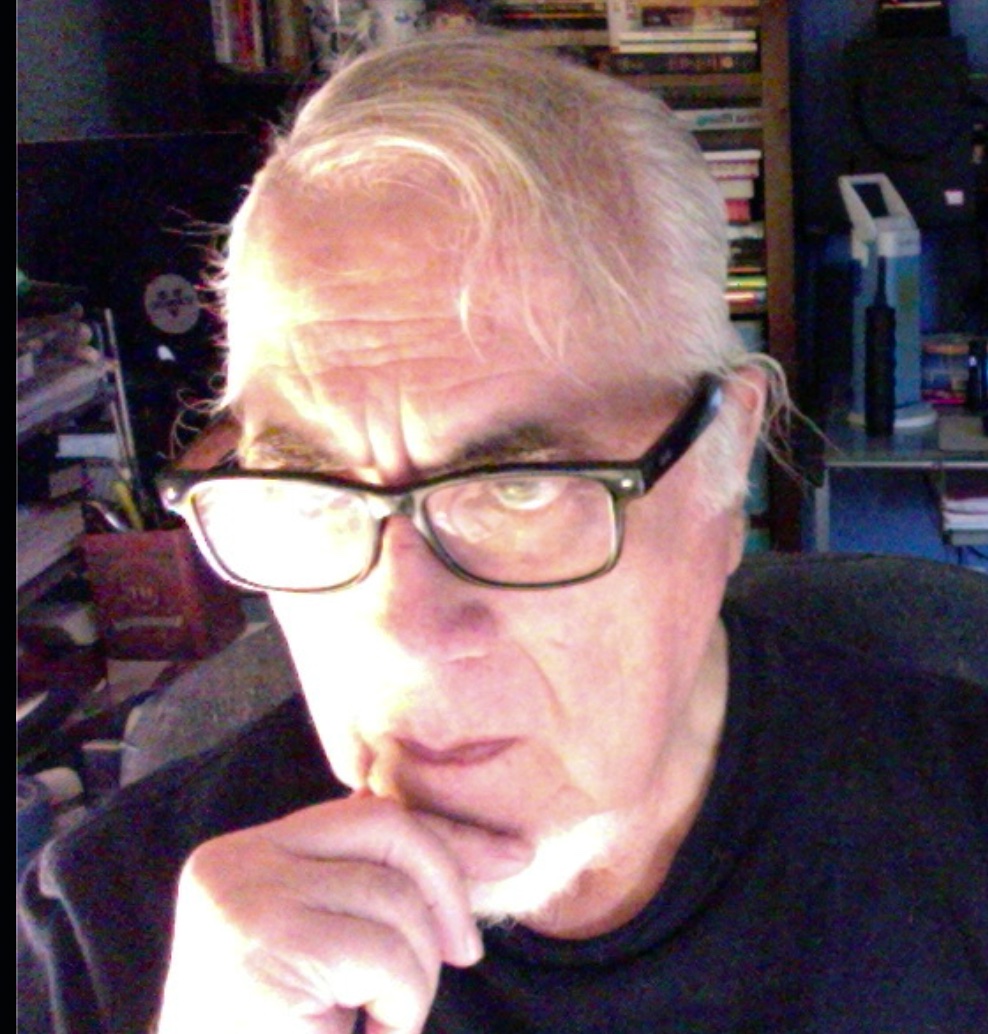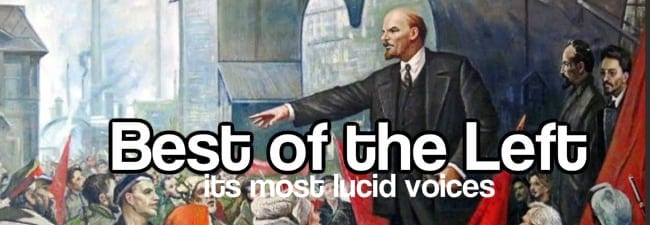BY PETER BOLTON

Photograph source: tomscoffin – CC BY 2.0
The truth is that what is happening in Venezuela is the usual playbook used by the US to make an economy "scream", as it was done in Chile in 1973 and scores of other nations around the globe since. The formula is simple: The US strangles all international credit, while the local business elites practice all forms of economic sabotage, hoarding and what not to create instability. Meanwhile, the Congressional leg of the triad blocks all measures proposed by the besieged government, thereby forcing it to appear desperate, "undemocratic, and eventually "illegitimate"—the ideal conditions to justify a military coup by traitor officers. The fact a coup has not yet happened in Venezuela is simply owed to the fact Chavez and his chavistas took good care to create a more loyal army, a popular armed forces. This ensures that a military option would be a lot harder and bloodier. Venezuela also has a substantial popular militia. All of this guarantees that the imperialist war against Caracas will continue indefinitely, while Venezuela's friends and allies—from Cuba and Iran to China and Russia—make their own contributions to stabilise the country.
—The Editor

The facile right-wing talking point that the economic crisis facing Venezuela “proves” that “socialism always ends in failure” has become so hackneyed by overuse that it has attained its own tongue-in-cheek name. The ad Venezuelum, as it has come to be known, has slowly developed into such a tedious and predictable right-wing tactic that it seems to now serve as an all-purpose retort to try to discredit even the most modest of left-of-center proposals. In October 2018, for instance, then-President Trump responded to a plan by progressive Democrats in Congress to introduce a bill to establish a system of universal public healthcare – something which every industrialized country other than the US already has – by stating: “It’s going to be a disaster for our country. It will turn our country into a Venezuela.”
Analysts on the left have long toiled against the ad Venezuelum by pointing out the myriad genuine explanations behind the economic crisis that has been roiling the country since around 2014. Caleb Maupin, for instance, has argued that falling oil prices were a key factor in the collapse of Venezuela’s economy. This is hardly a controversial point given that Venezuela’s dependence on oil, which was first discovered in the 1920s, has led to a highly unstable economy featuring regular bouts of economic chaos caused by a sudden drop in the price of crude. In the early 1980s, during the government of Luis Herrera (of the right-wing COPEI party), for example, there was a huge economic crisis with many of the same features as the one confronting the country today. Needless to say, no one at the time tried to pass this off as proof that capitalism doesn’t work.
Ryan Mallet-Outtrim, who himself lived in Venezuela for several years, has argued that the government’s monetary policy has been one of the main factors behind the crisis. In particular, he pointed out that the fixed exchange rate, which of course is hardly socialistic in nature, had an unintended effect on demand for currency that in turn led to an inflationary spiral. He is not alone is his criticism of the fixed exchange rate; economist Mark Weisbrot of the Center for Economic and Policy Research (CEPR), who like Mallet-Outtrim is broadly sympathetic to the Chavista government, has argued for years that Venezuela should drop it in favor of a floating exchange rate.
I myself argued in a 2016 essay for the Council on Hemispheric Affairs that an economic war waged by a domestic societal elite, and abetted by the United States, has been a major cause of the crisis. Though dismissed by critics of Chavismo as a conspiracy theory, there is, in fact, ample evidence of an economic war against the Venezuelan government ever since Hugo Chavez was first elected in 1998. The so-called oil strike, for instance, (in reality a management-led lockout) was a transparent attempt to bring about regime change by crippling the economy. Cases of hoarding goods and deliberately disrupting supply chains on the part of the opposition-friendly private business sector, meanwhile, have been well-documented.
All of these explanations have undoubtedly formed part of the rich tapestry of causation behind Venezuela’s economic woes. But what is equally undeniable is that US-imposed sanctions have augmented these factors as well as compounded the suffering felt by ordinary Venezuelans. As Roger Harris pointed out in a May 4 essay for CounterPunch, even a US government-authored report admits that “sanctions, particularly on the state oil company in 2019, likely contributed to the steeper decline of the Venezuelan economy.” Now, in addition to the US government itself, one its major organs of interventionist propaganda has conceded this exact same point.
In a May 30 article in The New York Times about how organized crime groups have stepped in to provide services in certain Caracas neighborhoods, Isayen Herrera and Anatoly Kurmanaev seem to almost inadvertently acknowledge that Venezuela is “disintegrat[ing] under the weight of Mr. Maduro’s corrupt leadership and American [sic] sanctions.” This is quite an admission from a publication that has been at the cutting edge of disseminating the ad Venzuelumas well as propagandizing for the US-orchestrated coup led by so-called ‘interim president’ Juan Guaidó and for US interventionism more broadly.
Outside the Alice in Wonderland world of the US corporate-owned media, however, this claim is uncontroversial. In addition to the aforementioned US government report that openly admits that US sanctions have exacerbated the crisis, a 2019 CEPR study authored by Weisbrot and development economist Jeffrey Sachs found the number of deaths caused by these sanctions to have stood at 40,000 between 2017 and 2018 (that is, before the coup had even begun). In early 2020, United Nations (UN) Special Rapporteur for Venezuela, Alfred de Zayas, estimated civilian deaths caused by sanctions to stand at around 100,000. This would almost certainly need to be revised up significantly as of June 2021 – not least because Venezuela, like the rest of Latin America, has been particularly hard hit by the coronavirus pandemic.
The US government’s intention behind the sanctions, meanwhile, is straightforward. Its goal is to goad the country’s populace into turning against its government via a brutal form of collective punishment – something which is illegal according to international law. Since the 1960s, successive US administrations in Washington have honed this tactic via the so-called trade embargo against Cuba. This crippling form of non-military warfare, more accurately described as an economic blockade, has led to roughly $130 billion in damage to Cuba’s economy according to UN figures and has inflicted severe suffering on Cuba’s civilian population according to mainstream human rights organizations and academic research.
The Times’ other claim that corruption is a major factor in the economic crisis facing Venezuela also discredits the ad Venezuelum. As international relations scholars point out, corruption is often endemic to resource rich countries, especially those in the developing world, and irrespective of the ideological stripe of their governments. Perhaps due to its indispensable importance for modern economies, of all the natural resources, oil seems to be the worst in its corrupting effects on a country in which it exists in abundance. Indeed, corruption hardly began in Venezuela upon Chavez’s election, but rather has been a recurring feature of its history that has debilitated the country’s economy under governments of both the left and the right.
There is a degree of irony to the Times’ reference to corruption as well. Because academic studies have demonstrated that sanctions actually lead to increases in corruption and organized criminal activity in the countries they target. Writing in Quartz, political scientist Bryan R. Early of the University of Albany, SUNY, points out that: “Not only are sanctions… frequently ineffective, they also can be counterproductive… [because they] encourage government corruption and the development of transnational organized crime.” So, apparently the Timesauthors are oblivious to the fact that US sanctions are ipso factopartly to blame for the phenomenon they describe in their article. Early adds: “Recent studies have shown… that sanctioned governments tend to become less democratic and are more likely to engage in human rights abuses, restrict women’s rights, and curb media freedoms.”
Note the cruel irony that these are some of the very alleged pathologies on which Washington bases its sanctions against Venezuela in the first place. And this shines a light on the fundamental duplicity and dishonesty that lies behind the US’s entire sanctions regime, whether it be against Venezuela, Nicaragua, Cuba or any other US adversary. Concerns about alleged corruption, alleged organized criminal activity, alleged human rights abuses, alleged deficits in media freedom or women’s rights, or, indeed, alleged breakdowns in democracy are not, and never have been, the factors on which Washington bases its decision to place sanctions on another country. If they were, then how come it not only issues no punitive measures whatsoever against the brutal Saudi dictatorship or the murderous narco-state in Honduras, but rather enters into lucrative arms deals with the former and lavishes the latter with generous funding for its state security forces?
Rather, Washington bases its decision to impose sanctions on a very simple criterion – whether or not a country is obediently serving its economic and geostrategic interests and accommodating its preferred neoliberal economic system. All of the aforementioned publicly proclaimed motivations are just post-hoc bogus justifications to give a veneer of credibility to (and manufacture consent for) its global campaign of naked coercion. We will surely never hear the likes of The New York Times point that out. But its admission that sanctions and corruption, rather than the purported inherent failures of socialism, are amongst the major causal factors of Venezuela’s economic crisis is surely a step in the right direction.


![]() This work is licensed under a Creative Commons Attribution-NonCommercial 4.0 International License
This work is licensed under a Creative Commons Attribution-NonCommercial 4.0 International License









